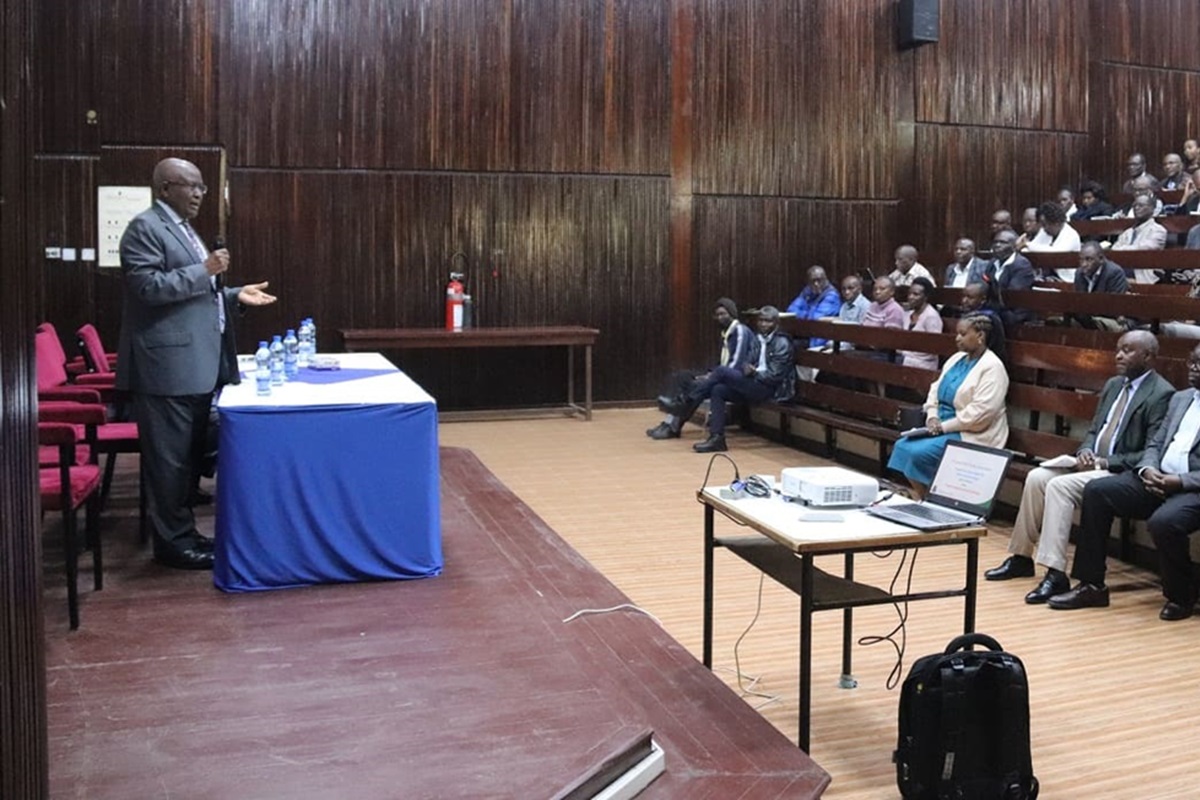Bachelor of Science in Agriculture
Rationale
Agriculture, through the provision of food, shelter, employment and cash income is the mainstay of Kenya's economy. Moreover, approximately 80% of Kenya's population lives in rural areas. It is for these reasons that the government of Kenya has taken a decisive measure to accelerate rural development through the enhancement of agricultural production. Some of these measures include the "District Focus for Rural Development" strategy and increased Agricultural Education and Extension. The Bachelor of Science in Agriculture programme at Egerton University is intended to help achieve some of these goals by providing highly trained manpower equipped with a broad range of both conceptual and practical skills geared towards promoting crop and animal production. The B.Sc. in Agriculture is a broad spectrum degree that would complement in terms of manpower requirements, other specialized degree programmes offered at Egerton University, particularly in view of the fact that extension service, public agricultural institutions and the private sector often require technical personnel that can assist in the development of a variety of enterprises both in animal and crop production.
Programme Objectives
The programme is intended to train high-level manpower with practical and conceptual skills to be deployed to increase crop and animal production through research, extension education, training, marketing and self-employment.
At the end of the programme, the graduate should be able to:
- Perceive the importance of agriculture and particularly the role of crops and animals in providing food, fiber-clothing and cash income for the Kenyan population;
- Effect proper methods of raising crops and animals either directly on his/her own farm, or indirectly through extension;
- Carry out basic and applied research geared towards enhancement of crop and animal production;
- Integrate practices of crop and animal production with other farming enterprises;
- Teach theory and skills of crop and animal production inappropriate agricultural institutions;
- Pursue advanced training in relevant areas of specialization in the agricultural sciences;
- Some graduates of this programme should be able to pursue further training in specialized areas of agricultural sciences.
Admission Requirements
- To be eligible for admission, applicants must satisfy the minimum entry requirements stipulated in the university statutes; currently, it is a requirement that applicants must at least have obtained a C+ grade aggregate in the Kenya Certificate of Secondary Education (KCSE) or its equivalent;
- In addition, to be admitted into this programme, applicants must have passed the KCSE with at least grades C+ in Mathematics; C+ in English; C+ in Biology or B in Biological Sciences; C+ in Chemistry or B in Physical Sciences;
- Alternatively, admission may be granted to Diploma holders who have passed with at least a Credit or its equivalent from recognized colleges or universities.
Course Structure and Duration
Full-time students are expected to take up to four years to complete the study, each year consisting of two semesters. Part-time students may take up to a maximum of eight years. Candidates must take and pass all required courses to qualify for the award of the degree of Bachelor of Science in Agriculture. In-service students with Diploma qualifications may be allowed to transfer up to a maximum 30% of the degree credit from Diploma level courses on the provision that the courses transferred were passed with grade B and above and in conformity with other specific terms set by the university senate.
The acronym ―AGRO‖ refers to Section Agronomy. The first digit represents the year or level of teaching with 1 as introductory; 2 and 3 as intermediate; and 4 as advanced and applied.
The second digit refers to sub-disciplines within agronomy or crop science as follows:
0=General or Basic Principles
1=Crop Physiology and Environment
2=Crop Improvement and Biotechnology
3=Crop Protection
4=Seed Science and Technology
5=Annual Crops
6=Perennial Crops
7=Pastures and Fodder Crops
8=Interdisciplinary courses.
9=Biometry and Experimentation; Projects, Seminars, Field Visits, Field Attachment.
Examination Regulations
All examinations for this programme shall be conducted in accordance with examination regulations as stipulated in the Egerton University Statute XXVIII
Grading System
The grading of examinations for this programme shall be conducted in accordance with Egerton University Statute XXVIII.
Graduation Requirements
To graduate a student shall be required to take and pass all scheduled courses within the stipulated period.
Degree Classification
Degree classification shall be in accordance with Egerton University Statute XXVIII.







